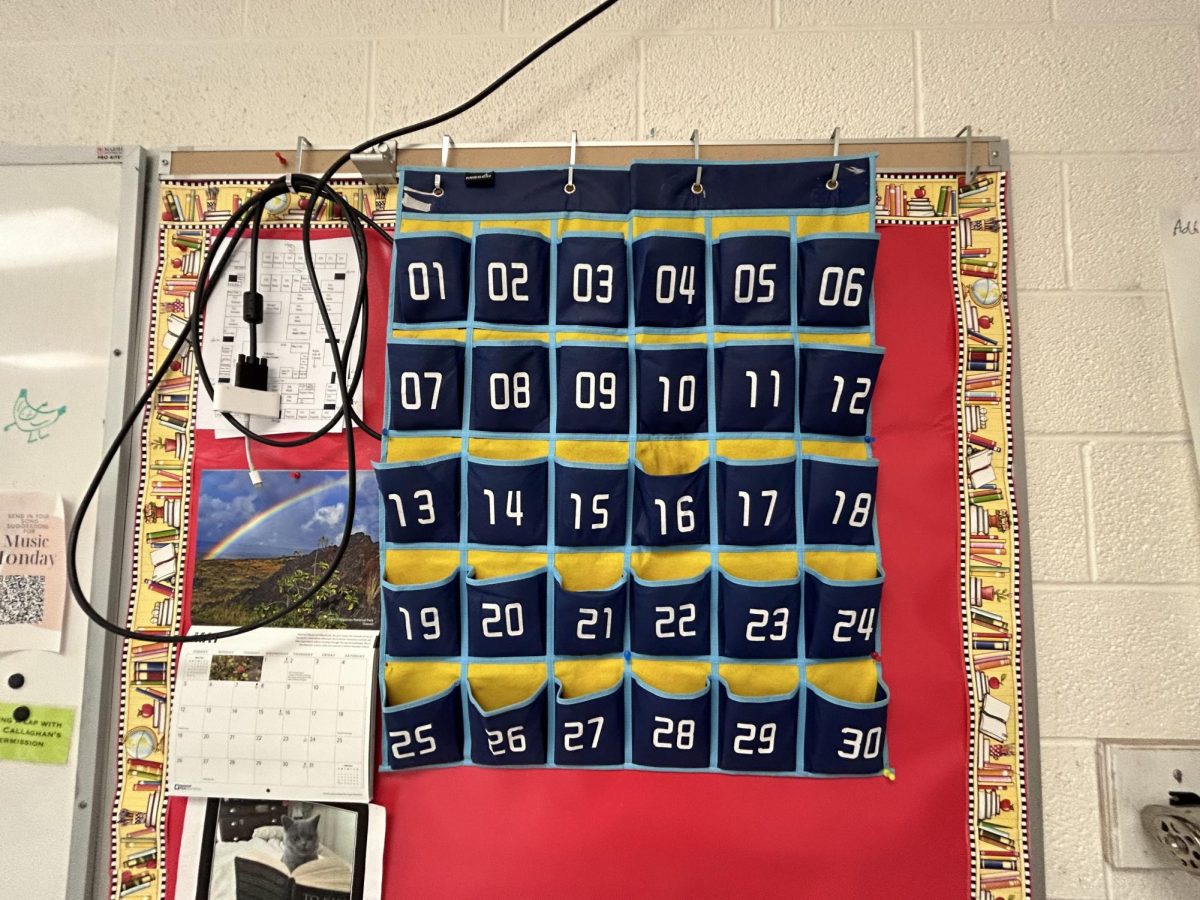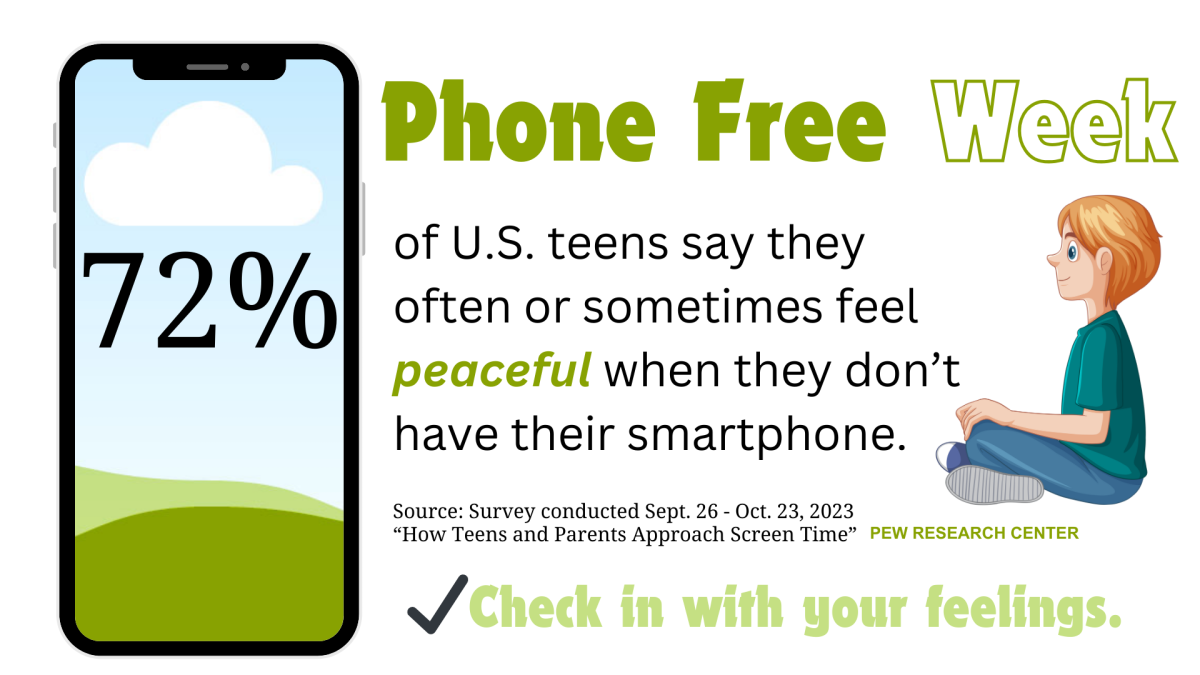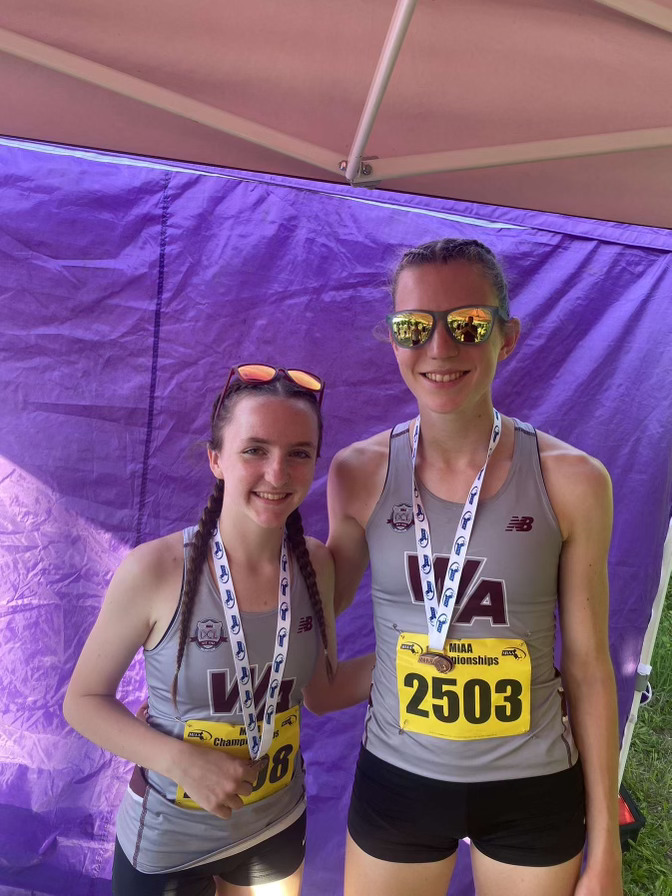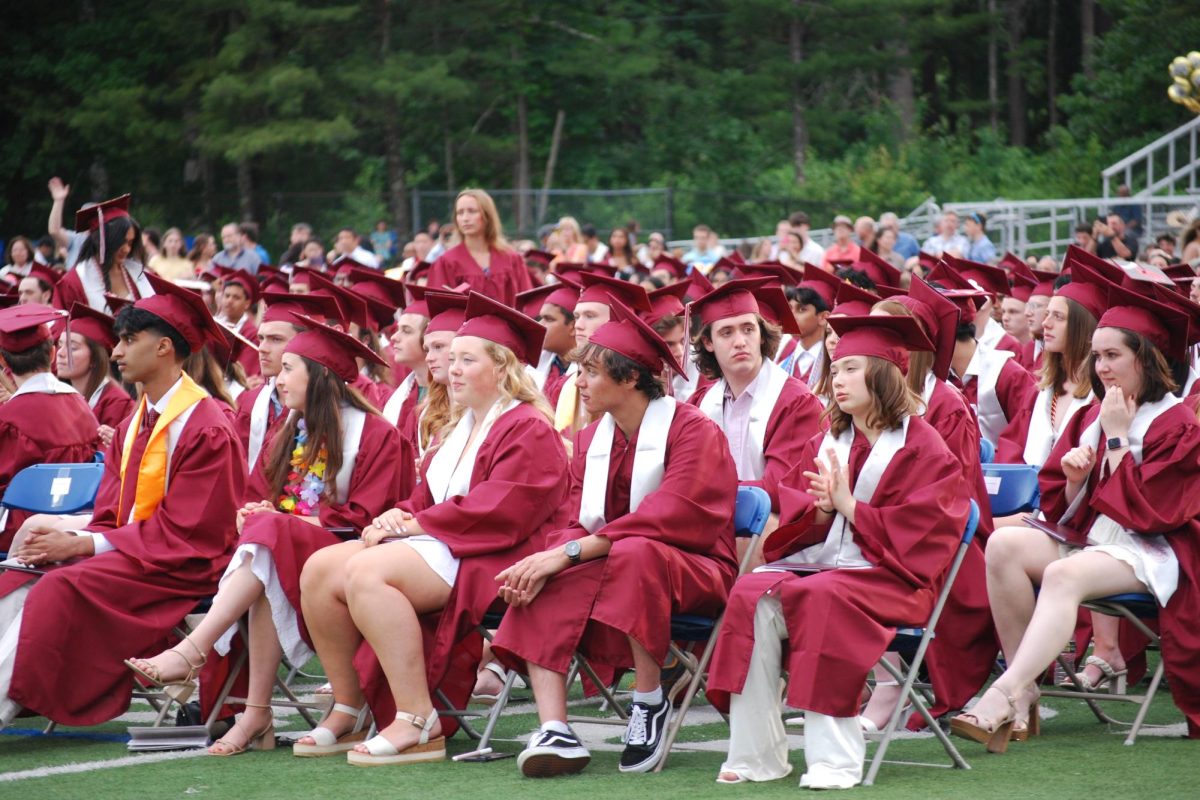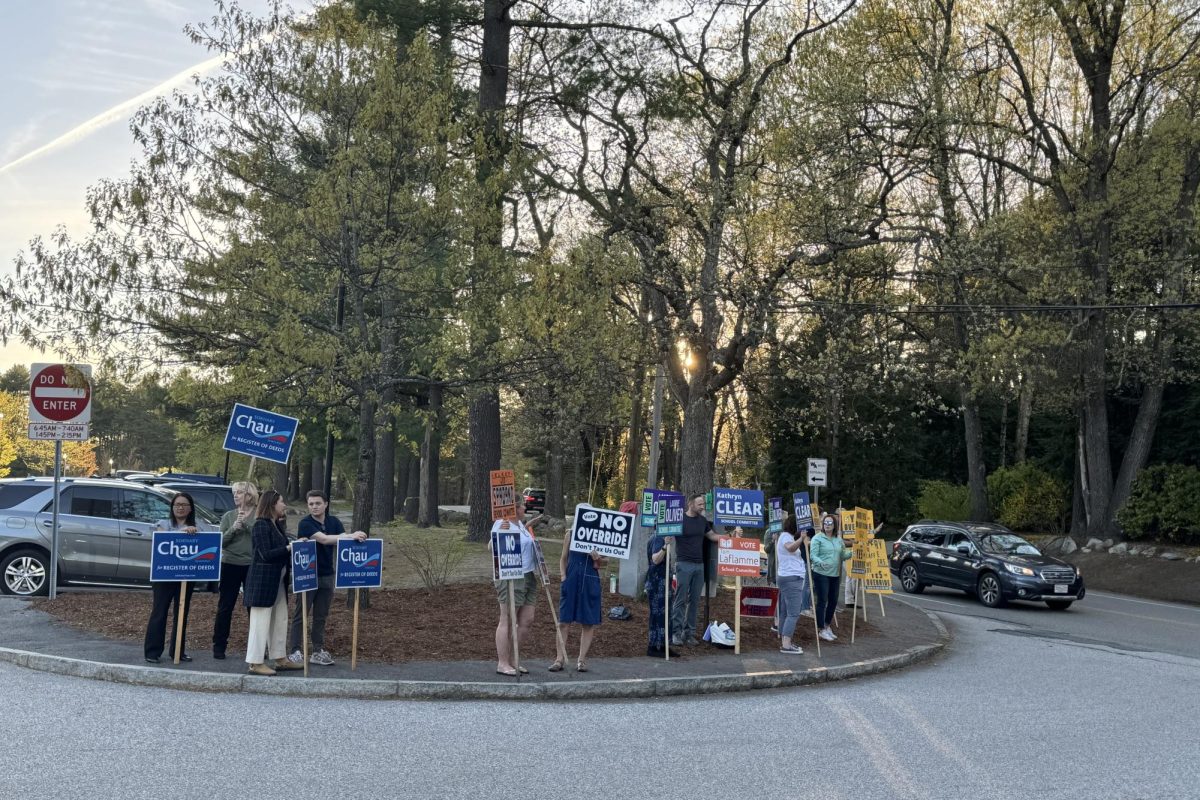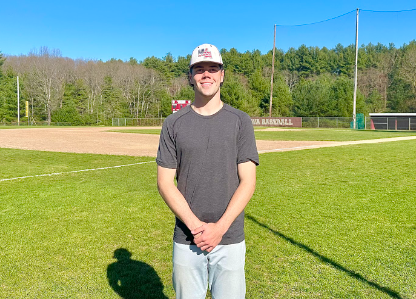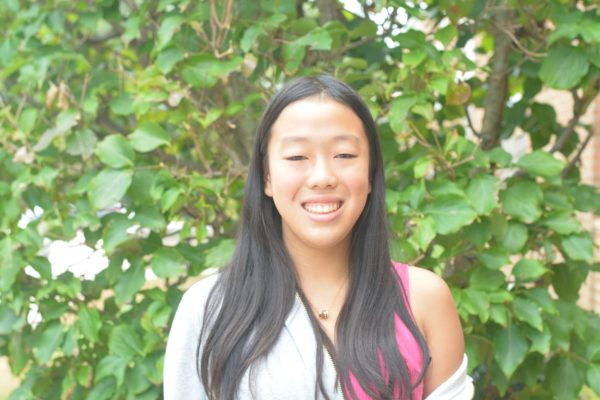Westford Academy students were required to put away phones during “No Phone Week” from Monday, May 20 to Friday, May 24. The purpose of the trial was to gather data to determine the best course of action regarding the usage of phones during the school day next year.
With this trial, the administration team, including Principal Dan Twomey, the Deans, and Director of Guidance Lauren Clark, aimed to increase engagement in classrooms, combat plagiarism and cheating, and promote more face-to-face interactions during the school day. They also hope to decrease the sharing and taking of photographs without permission, which they believe is becoming a more prevalent issue.
Students followed a schedule in which the time phones could be used decreased throughout the week. On Monday and Tuesday, students were required to keep their phones turned off and out of sight in their bags or a phone caddy during class time, which was based on the teacher’s discretion. On Wednesday, students were only allowed to use their phones during lunch, along with no usage during class, phone usage was also not allowed in the halls or during passing time. On the last two days of the trial run, Thursday and Friday, phones were required to be off and out of sight for the entire school day.
Murphy believes that the trial week went well and that a policy limiting phone usage will certainly be set in place next year. However, administration will determine the specifics of the plan over the summer, including whether the policy would allow for phone use during lunch or passing periods.
“It was a good week to test the waters. I thought it was good for teachers to rethink what they want in the classroom. I had a couple of teachers say that they didn’t have a cut-and-dry policy. But regardless of what we do next year, they are going to do that because they now understand that the gray area hasn’t been great,” Murphy said. “They know why they have to troubleshoot sometimes because they never really made it clear. Or, [they made it] not clear because they wanted everybody to be responsible, but not everybody is.”
Administration was able to learn from the trial week in order to make additions and improvements to the policy for next year. The trial week showed that the policy would have to require certain rules regarding smartwatches and earbuds, and that additional education about phone use and digital citizenship may need to be implemented.
“I don’t believe the freshmen and sophomores have ever been educated on phone use and digital citizenship because it comes at a certain time in certain schools,” Murphy said. “And whether that was [because of] COVID or some other reason, we’re sitting here frustrated, why there’s some that are so over the top. If parents weren’t doing their own rules at home, the schools are not responsible for taking care of adequate performance. So maybe we have to do a little education, when we come back, and hopefully we can correct that.”
During the trial week, library media specialists Suzanne Harde and Christin Monaghan, along with digital learning specialist Stephanie Gosselin started this process by putting together slides that appeared on the school televisions and social media, which educated students about phone use and gave a greater explanation as to why the trial week was being conducted.
Despite some students not complying with the rules, administration believes that the trial week went smoothly and was a learning experience for all. Some students are used to always having their phones out on tables, and administration hopes that they can break students out of this habit.
“I think a lot of people are on their phones because everybody else is on the phones and it’s just how we’ve allowed things to be for years. And by telling them that they can’t, they’re like ‘it’s not that big of a deal. Maybe I’m just using it because it’s there, maybe it’s just a habit.’ It’s probably a good eye opener,” Murphy said.
While some students did not have an issue with keeping their phones off and away during class, many students felt strongly that requiring students to put phones away during lunches and passing periods is unreasonable.
“I feel like the phone week was long and it got harder as the week progressed,” sophomore Ava Mascarenhas said. “For the first few days though it didn’t really feel [very] different as many students don’t use their phone in class anyways but towards the end of the week it was definitely restricting.”
On the other hand, teachers shared mixed feelings about restricting phone use during lunches and passing periods. Some teachers believe that restricting phone use during the whole school day could improve students’ mental health, but others feel that restrictions during unstructured time would lead to a negative impact on mental health.
“During unstructured times, in the hallway and/or the cafeteria, I feel it’s fine for students to have their phones. For some kids, it may be their only ‘social interaction’ during lunch,” English teacher Rashmi Kumar said.
Overall, administration hopes to maintain a level of consistency across all classrooms. Currently, teachers have the flexibility to decide whether students are allowed to use their phones during class or not. Some teachers have already implemented the phone caddy, others require students to put their phones in their bags or out of sight, and the rest are more lenient about phone use in class.
“We hear from students that it’s hard. It’s hard to really know because some teachers are flexible and some teachers aren’t and then the ones are trying to go by what we’ve asked them to do, look like the bad guys. So we’re just trying to make more consistency in the school,” Murphy said.







